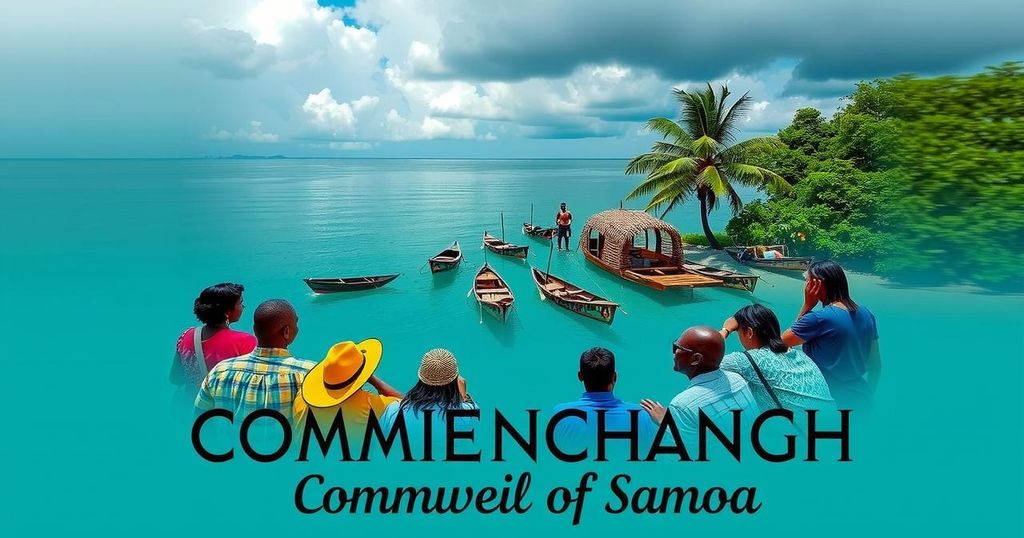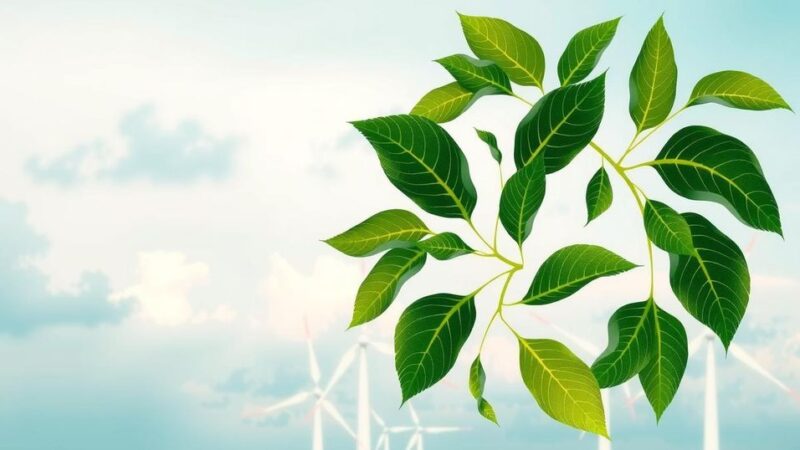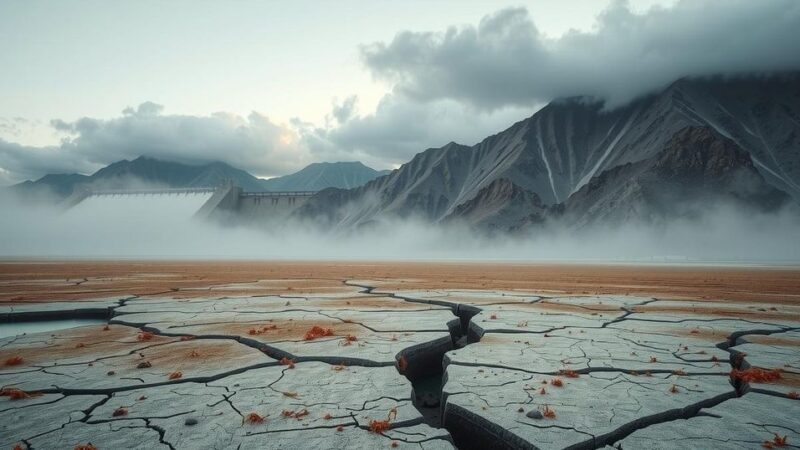In Samoa, leaders of the Commonwealth met to discuss pressing issues of climate change and reparations for transatlantic slavery. With rising sea levels threatening many small island nations, Tuvalu’s minister called for adherence to climate goals. British Prime Minister Starmer stated that the UK would not address reparations at this summit but would be willing to listen. CARICOM nations are advocating for reparations discussions, highlighting the ongoing relevance of historical injustices. The summit represents an important opportunity for dialogue on these critical subjects.
Leaders of the Commonwealth of Nations convened on Thursday in Samoa for a pivotal summit addressing climate change and the contentious issue of reparations for transatlantic slavery. King Charles, representing the 56 member nations, characterized by historical ties to the British Empire, attended the Commonwealth Heads of Government Meeting (CHOGM) initiated on Monday. Among the members, many are small, low-lying island nations particularly vulnerable to the escalating threats posed by climate change. Notably, Tuvalu’s climate change minister, Maina Vakafua Talia, emphasized the necessity of adhering to the Paris Accord’s target of limiting global warming to 1.5 degrees Celsius, cautioning that further fossil fuel projects would signify a “death sentence” for his nation. Concurrently, island leaders are anticipated to release a declaration focused on ocean protection, with climate challenges being a primary topic of discussion. Australian Foreign Minister Penny Wong identified climate change as the principal national security and economic threat to Pacific communities and various Commonwealth members. Zambia’s representatives echoed concerns regarding the adverse implications of climate change on food security. On Thursday, King Charles is expected to witness firsthand the effects of rising sea levels causing displacement, as highlighted by a local Samoan chief. According to UN Secretary-General Antonio Guterres, the Pacific Islands encounter an alarming increase in ocean temperatures at three times the global average, positioning their populations as uniquely vulnerable to climate-related changes. Samoan Prime Minister Fiame Naomi Mata’afa welcomed the delegates, including Australian Prime Minister Anthony Albanese and British Prime Minister Keir Starmer, each donning traditional attire and suits, respectively. A comprehensive discussion regarding reparations for transatlantic slavery formed an integral part of the agenda, with heightened advocacy from nations within the Caribbean Community (CARICOM) and the African Union. Although Prime Minister Starmer announced that Britain would not engage in reparations dialogue nor issue an apology, he expressed his willingness to converse with leaders invested in this topic. Starmer emphasized a focus on future progress rather than past grievances. A CARICOM representative indicated that CHOGM represented a crucial platform for reparations discourse, particularly relevant for countries such as Barbados and Jamaica who intend to raise this matter. Eric Phillips, representing CARICOM’s reparative justice initiative, criticized Starmer’s approach, questioning the Commonwealth’s relevance if it disregards historical injustices. Despite official resistance, behind-the-scenes discussions about reparations are reportedly ongoing, as mentioned by Kingsley Abbott, director at the Institute of Commonwealth Studies in London. Notably, some draft documents from the summit included references advocating for reparations discussions, confirming interest among CARICOM nations in initiating this conversation. The debate over reparations remains polarized; proponents assert that the historical injustices of slavery have contributed to longstanding racial disparities, while opponents argue for the disengagement of contemporary nations from historical wrongs. As Abbott stated, “Whenever those affected by atrocities ask to talk, there should always be a willingness to sit down and listen.” Historically, between the 15th and 19th centuries, over 12.5 million Africans were forcibly enslaved and transported, enduring inhumane conditions in the Americas, primarily in Brazil and the Caribbean, with immense profits generated from their labor.
The Commonwealth Summit in Samoa is a significant gathering of leaders from countries that largely have historical connections to the British Empire. The focus of the discussions encompasses critical global issues, chiefly climate change, which presents existential threats particularly to the small island nations within the Commonwealth. Moreover, the summit addresses the historically rooted question of reparations for transatlantic slavery, a topic gaining traction not only in Commonwealth discourse but globally, especially in the context of racial equity and historical accountability. The ongoing dialogue reflects a broader movement among affected nations seeking acknowledgment and remedy for lasting injustices stemming from their colonial pasts. The involvement of high-profile leaders, including King Charles, signifies the potential for substantial deliberations on these pressing matters.
The Commonwealth Summit in Samoa underscores the urgent and intertwined challenges of climate change and historical injustices associated with transatlantic slavery. While leaders confront the immediate risks posed by environmental crises, they also face the complex legacy of colonialism and the demand for reparations. The summit not only aims to align member nations towards sustainable environmental policies but also opens the floor for difficult conversations about reparative justice, emphasizing the ongoing struggle for equity among historically marginalized populations. As discussions progress within the Commonwealth framework, the outcomes may shape future engagements on both climate and social justice fronts.
Original Source: stratnewsglobal.com






